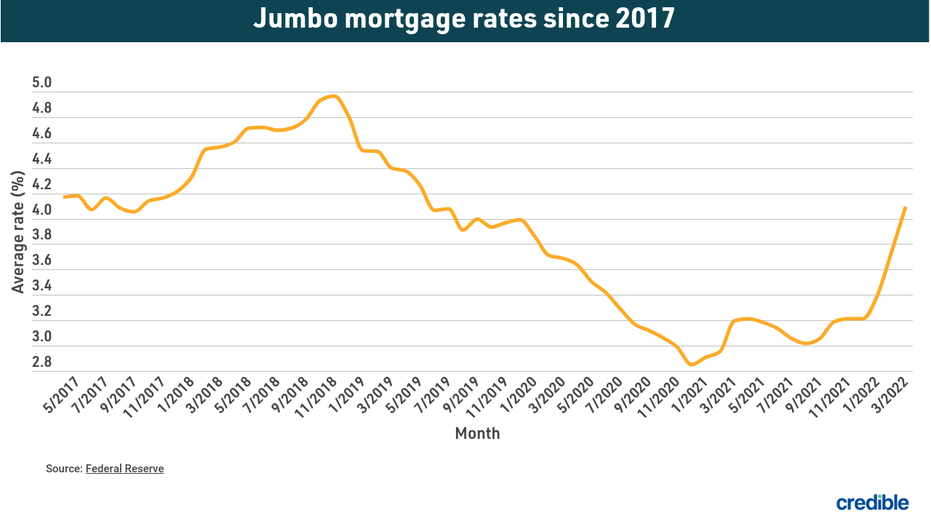Exploring the Perks and Characteristics of Jumbo Loans for Your Next Home Acquisition Decision
As the property market progresses, comprehending the intricacies of big fundings comes to be progressively pertinent for prospective buyers thinking about high-value residential or commercial properties. These lendings not just assist in substantial funding however also use several advantages, such as competitive interest rates and the possible removal of private home mortgage insurance coverage. However, the course to securing a big loan is laden with specific eligibility standards that may challenge some buyers. To totally appreciate exactly how big loans can affect your home acquisition technique, it is crucial to discover their crucial attributes and advantages in greater detail.
What Is a Jumbo Finance?

Jumbo finances are typically made use of by purchasers seeking to acquire high-value residential properties or homes in expensive markets. jumbo loan. Given the bigger amounts borrowed, lenders commonly enforce stricter credit needs, including higher credit history, reduced debt-to-income ratios, and larger deposits. The rate of interest on jumbo car loans might be slightly greater than those on adapting loans, mirroring the enhanced danger for lending institutions
Additionally, the authorization process for a big funding can be much more complex and taxing, as lenders need extensive paperwork to assess the debtor's financial stability. Understanding these subtleties is essential for potential house owners thinking about a big lending for their home funding requirements.
Trick Advantages of Jumbo Lendings
One considerable benefit of big fundings is their capacity to fund higher-priced buildings that exceed adapting loan limitations. This function makes them an eye-catching alternative for buyers seeking to buy luxury homes or buildings in high-cost locations where rates normally surpass traditional loan limits.
Additionally, jumbo finances often come with flexible terms and affordable rates of interest, allowing borrowers to customize their funding to fit their distinct monetary circumstances. jumbo loan. This versatility can include alternatives for adjustable-rate mortgages (ARMs) or fixed-rate loans, providing buyers with the capacity to handle their regular monthly settlements according to their choices
One more advantage is that big financings do not require exclusive home loan insurance coverage (PMI), which can considerably reduce the overall price of the loan. With PMI often being a significant cost for traditional fundings with low deposits, avoiding it can cause considerable financial savings gradually.
Additionally, consumers of big fundings generally have accessibility to higher financing quantities, enabling them to buy properties that fulfill their lifestyle requires. This gain access to encourages purchasers to act emphatically in competitive actual estate markets, protecting their desired homes a lot more efficiently. In general, jumbo finances supply important advantages for those looking for to fund premium residential or commercial properties.
Eligibility Demands for Jumbo Loans
Jumbo finances come with certain eligibility demands that possible borrowers need to fulfill to protect funding for high-value properties. Unlike traditional financings, which have actually established limits based on the adhering funding limits established by government-sponsored entities, big loans exceed these thresholds, requiring more stringent standards.

Furthermore, jumbo fundings typically require a significant down payment, commonly ranging from 10% to 20% of the purchase cost, depending on the lender's plans and the borrower's financial circumstance. Satisfying these eligibility needs can position borrowers favorably in protecting a big lending for their preferred residential or commercial property.
Comparing Jumbo Loans to Conventional Financings
Understanding the differences in between jumbo financings and traditional loans is vital for property buyers navigating the premium realty market. Big financings go beyond the adjusting lending limitations set by the Federal Housing Finance Firm (FHFA), which indicates they are not qualified for purchase by Fannie Mae or Freddie Mac. This results in different underwriting criteria and needs for customers.
On the other hand, standard loans normally comply with these limits, permitting an extra streamlined authorization process. Jumbo loans often call for stricter credit ratings, bigger down payments, and greater economic gets. While a conventional car loan could need a down payment of as little as 3% to 5%, big fundings usually demand a minimum of 10% to 20%.
Interest prices on jumbo loans might differ from those of conventional financings, usually being somewhat greater due to the boosted threat lending institutions assume - jumbo loan. Nonetheless, the potential for considerable funding can be helpful for customers seeking high-end residential properties. Inevitably, comprehending these differences makes it possible for homebuyers to make educated choices, straightening their funding options with their one-of-a-kind getting demands and financial situations
Tips for Protecting a Jumbo Financing
Protecting a big finance calls for mindful preparation and preparation, as loan providers commonly enforce more stringent demands contrasted to standard car loans. To improve your possibilities of approval, begin by inspecting your credit rating and attending to any type of issues. A score of 700 or higher his response is generally favored, as it demonstrates creditworthiness.
Following, gather your monetary documentation, including tax returns, W-2s, and bank statements. Lenders generally require comprehensive proof of income and properties to analyze your capability to pay back the financing. Keeping a reduced debt-to-income (DTI) ratio is also critical; purpose for a DTI below 43% to enhance your application's competition.
Additionally, take into consideration making a bigger deposit. Numerous lenders look for a minimum of 20% down for big financings, which not just minimizes your funding quantity yet also signals financial stability. Engaging with an right here educated mortgage broker can provide vital understandings into the process and aid you navigate various loan provider options.

Conclusion
In summary, jumbo finances present considerable benefits for property buyers seeking buildings that go beyond traditional funding limits. Complete understanding of both the needs and benefits associated with jumbo car loans is crucial for making notified home acquisition choices in an affordable actual estate market.
The passion rates on big finances may be slightly higher than those on conforming car loans, mirroring the raised danger for loan providers.
While a traditional funding could call for a down repayment of as little as 3% to 5%, jumbo loans typically necessitate a minimum of 10% to 20%.
Passion rates on big lendings might differ from those of traditional lendings, frequently being somewhat higher due to the boosted risk lenders presume.Safeguarding a jumbo financing needs cautious preparation and preparation, as lending institutions commonly impose more stringent needs contrasted to traditional fundings. Numerous lenders look for at her comment is here least 20% down for jumbo fundings, which not only minimizes your finance amount however additionally signals financial stability.